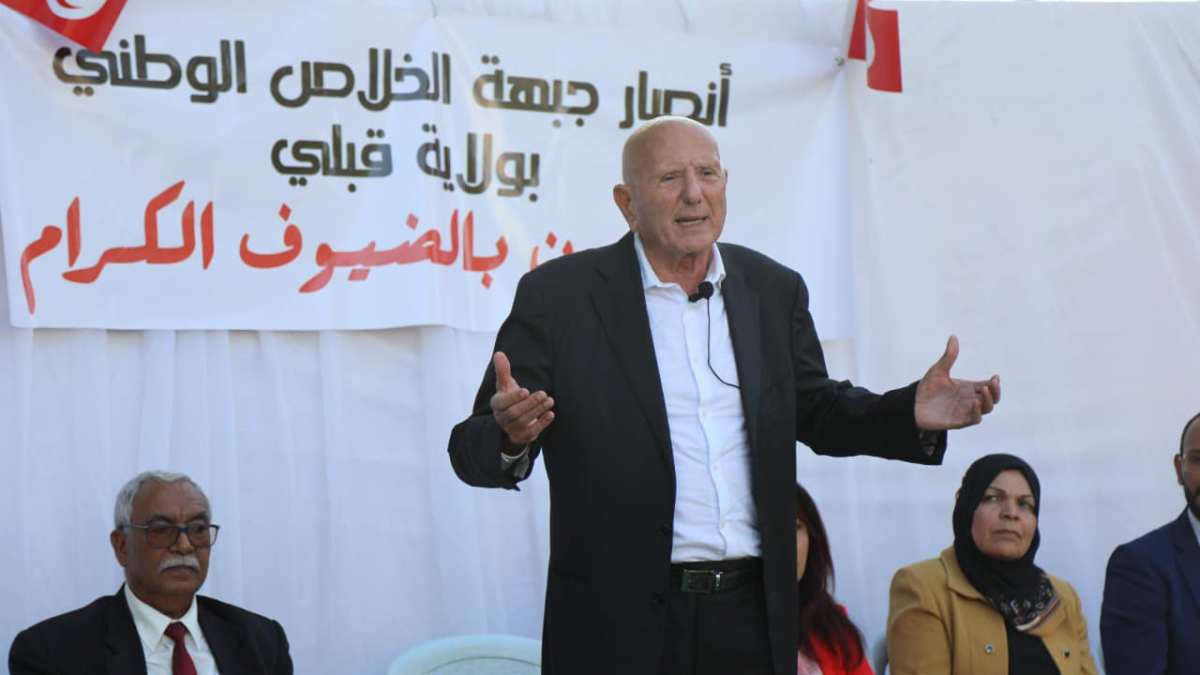The National Salvation Front in Tunisia announced on Sunday its movement in all countries, to achieve what it called "political mobilization" in order to return to democracy and protect freedoms.
Chebbi said - during a gathering of the front's supporters in the Kebili governorate in southern Tunisia - that the members of the front launched a series of moves in all Tunisian states "with the aim of political mobilization in order to return to democracy and to protect freedoms and institutions."
Chebbi explained that the goal of the political mobilization is "to stand with the Tunisian people to say no to the high prices, the loss of basic materials and medicines from the market, and to say enough is enough for the disintegration of agriculture and the slow death of industry."
The National Salvation Front, which was announced on May 31, includes 5 parties: the Ennahda movement, "Qalb Tounes", the Dignity Coalition, the Tunis Movement of Will and Hope, in addition to the "Citizens Against the Coup" campaign, and a number of parliamentarians.
The leader of the Salvation Front, Reda Belhaj, said during his participation, today, Sunday, in a popular meeting in Qibli, that the Front followed the path of peaceful civil resistance and contact with the rules and the people to sensitize them to the dangers of the economic and social situation in Tunisia and the risks of slipping through which Qais Saeed went through in the coup.
- Tunisian events (@ Tunisian_events) October 30, 2022
Political forces
The head of the Salvation Front said that the Front will go tomorrow to all political forces "to gather the floor with the aim of saving Tunisia and returning to democracy," adding that those he called the coup, in reference to Tunisian President Qais Saeed, no longer have the ingredients to keep, and he is in complete isolation, he said.
Front member Abdel Latif al-Makki said, during the same gathering, that the country's president "is unable to reform, and if he wanted to do so, he would have responded to the calls for dialogue that were launched before and after the coup."
Since July 25, 2021, Tunisia has been experiencing a severe political crisis when President Said began imposing exceptional measures, including dismissing the government and appointing others, dissolving the Judicial Council and Parliament, issuing legislation by presidential decrees, approving a new constitution through a referendum last July 25, and early parliamentary elections Until December 17th.
Parliament elections
The Independent High Authority for Elections in Tunisia said the day before yesterday, Friday, that 1,427 candidates, including 214 women, submitted their candidacy files for the early parliamentary elections, after the deadline for submitting nominations expired.
The parliamentary elections represent the last leg of the road map developed by Tunisian President Kais Saied since he announced the exceptional measures on July 25, 2021.
This year's elections are held by voting by individuals instead of voting by lists, according to the new electoral law established by the Tunisian president, which reduced the number of seats in parliament from 217 to 165.

